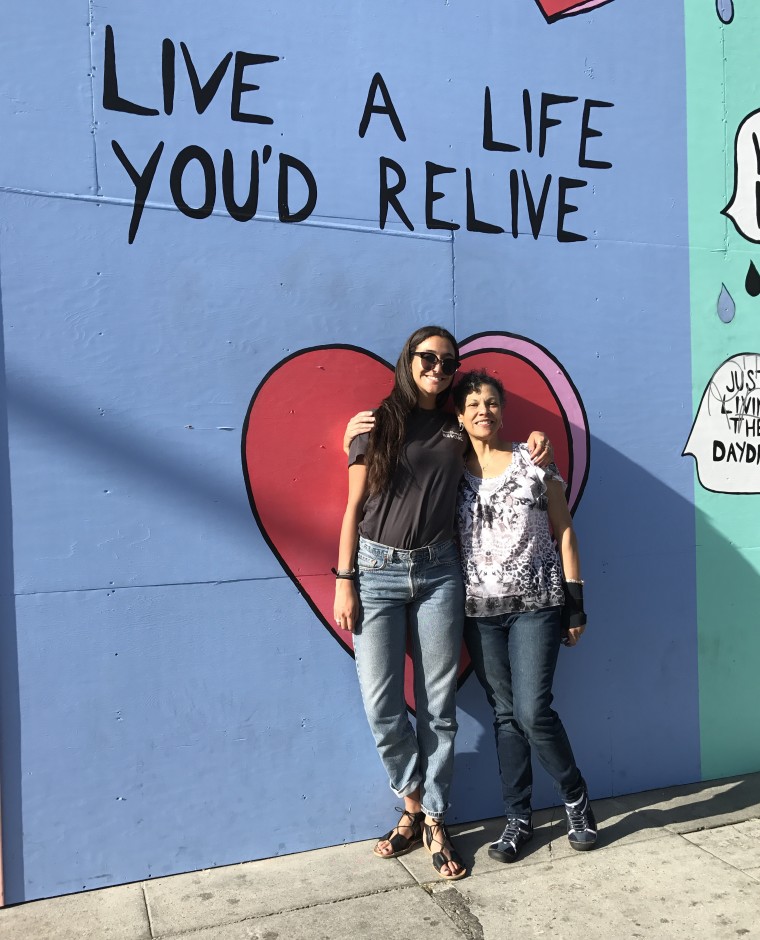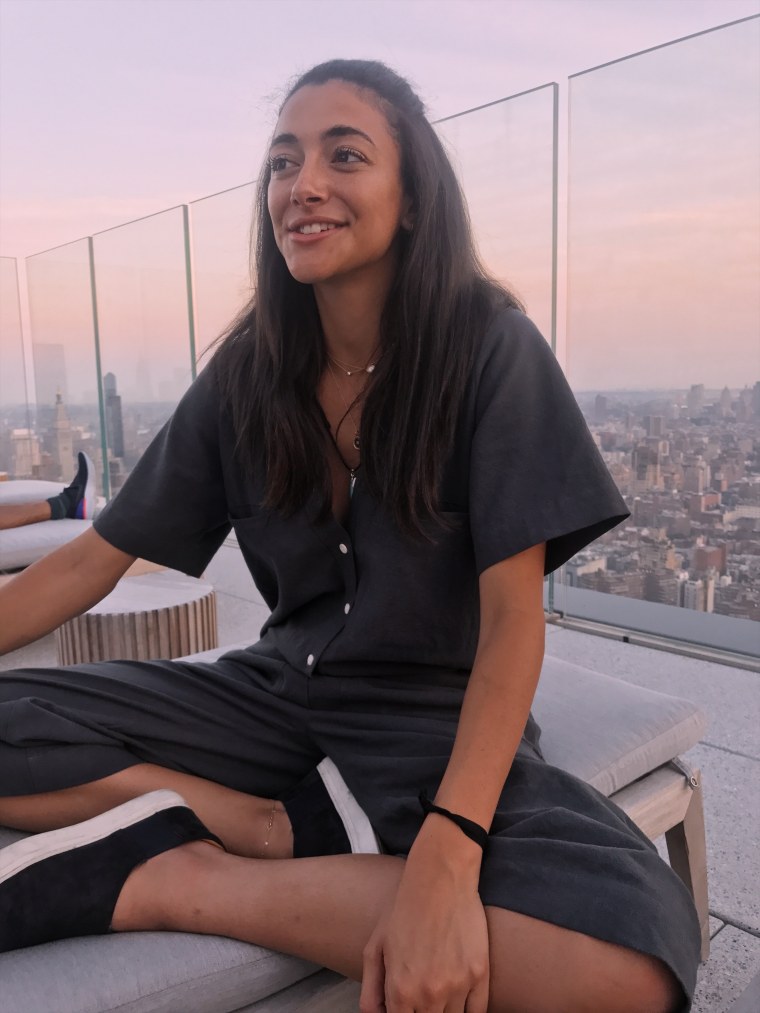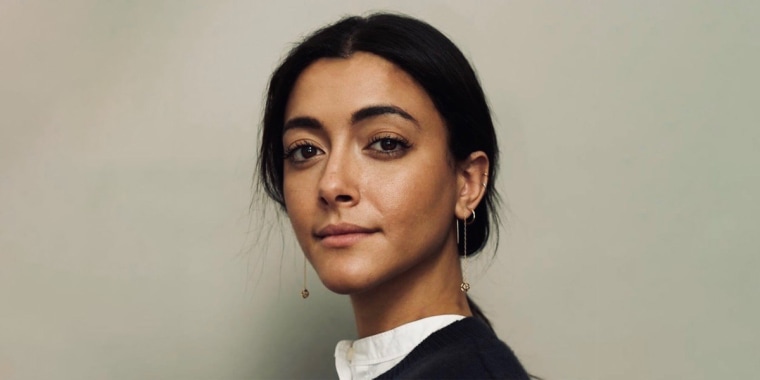On an early morning in April, thousands of cars lined up at a San Antonio food bank. Dawn had not yet broken, and families rushed to receive emergency food to get through the week. Harrowing photos showed workers and volunteers handing off bags of potatoes, rice and fruit to an endless queue of cars. The coronavirus pandemic had already gobbled up over 20 million jobs, leaving many without paychecks needed for putting food in their family's stomachs.
I watched the coverage on TV from a kitchen in New Jersey. My mom, a local food bank volunteer herself, watched with me, aghast at the sight.
"It just makes me thankful that we have food at all," she said. I nodded in silence. I, too, felt thankful I could still afford to go to the grocery store. Admittedly, however, the images filled me with anxiety, powerlessness and shame because I was quietly spiraling back into an eating disorder I thought I'd left behind before COVID-19 hit.
I started suffering from an eating disorder 10 years ago, from the time I was 15 years old. Not allowing myself to eat food was a stress management technique, which quickly manifested in vicious self-loathing and distrust of my own body. I believed I was high functioning enough to go without help until, of course, one day, I couldn't. My heart rate had plummeted. My hair had thinned. I couldn’t walk without panting. At 19 years old, I was haggard and depressed, utterly checked out of my own life.
Thanks to my mom’s sheer dedication to my recovery, I received help at a practice in Southern California. I learned how to respect the only body I'll ever have. I began to look at food as the basic ingredient to finding joy again. I found healthy alternatives to managing stress and I found myself again.
RELATED: Mika: My lifelong struggle with sugar
Then COVID-19 hit the U.S., threatening to take an ax to all of the recovery work I'd done. If my eating disorder were a fire, body-image is the wood upon which the flames burn. But anxiety is the kerosene that ignites the flames. And watching an invisible killer virus sweep across the nation, taking the lives of the old and the young, doused kerosene into my bloodstream.
On top of that, I watched my aunt die late February. She was only 60 years old and experiencing liver failure. Her life would be severely compromised, the doctors told us, but they believed she would be able to one day leave the hospital. But after a month in intensive care, she developed complications similar to those associated with pneumonia. New York state did not have it’s first recorded coronavirus case until a few days after she died, but watching her labored breathing on a ventilator was a preview of the months to come. She was one of the most important figures of my life, and her death was nothing short of a total shock to my nervous system.

To cope, I turned to the emergency, make-shift stress management of my past: not eating. I used dieting excuses of "intermittent fasting" and avoiding the "Quarantine 15," and hid the anorexia behind them. I scorned mirrors and reflections over Zoom calls. I weighed myself as vigilantly as I wore a mask in public. I diligently distracted myself from the feelings of uncertainty and heartbreak in front of me, all allowed by the fact I was so damn hungry.
Long ago I mastered the art of staying productive at work while I was hungry. But what never ceases to follow a period of restriction is a period of binge-eating. For a day at a time, all I could think about was food. A frenzy came over me and I became ravenous for anything in front of me. It was in those periods that I felt the lowest and like a failure. I felt repulsed by my body and what it needed to consume. Over the course of three months, this is how the vicious cycle would repeat.
I was shocked to learn that the symptoms I was experiencing were unfolding on a national level. The National Eating Disorders Association has reported a 70 percent increase in the number of calls and online chats to their helplines compared to last year.
Approximately 30 million Americans will struggle with an eating disorder at some point during their lives, according to Claire Mysko, CEO of NEDA. That number doesn't go away during a pandemic. It is exacerbated by the "collective trauma" of the pandemic, Mysko told me. "We're facing a global pandemic, but we're also facing a mental health crisis attached to it," she noted.

Dr. Jillian Lampert, chief strategy officer of The Emily Program, a national network of eating disorder treatment centers, said the program has also seen inquiries online and phone increase by staggering amounts in the past few months.
Eating disorders drag people towards the edge of a cliff, Lampert explained. "With the pandemic, we're seeing people getting dragged over there much more quickly," she told me.
The disease feeds on isolation, a condition that hasn't been optional for many during quarantine. I was fortunate enough to live with my family; otherwise, I might have found myself closer to the edge of a cliff as well. They acted as the mirrors I couldn't scorn. Looking at them reminded me of the commitments I'd made to my health years ago in recovery.
I got honest about my anorexia. I needed to accept the presence of the pandemic in my life, without relinquishing my own power over my well-being. The pandemic has ravaged the country for seven months now with no end in sight. Grieving the loss of over 210,000 loved ones and grieving my aunt's loss, cannot wait for a vaccine's arrival.
RELATED: Mika on body image: 'I'm no longer a slave to outside expectations'
First, I removed any social media influencers from my Instagram feed that idealized thin bodies as the standard bearers of beauty. I restocked my feed with body positive accounts, like The Body is Not An Apology and The F*ck It Diet. Second, I returned to the journals I kept during my days in recovery. I found dozens of affirming lessons I’d learned about trusting my body, waiting to be re-embrace. I began to paint and draw again as well, a healing outlet I’d turned to when I couldn’t find the right words to describe pain. Finally, most importantly, I told the people around me, my family and my roommates, that I had been struggling.
According to Tamson Overholtzer, a certified eating disorder specialist supervisor at Bright Road Recovery, we can start healing by not minimizing the pandemic's impact on our well-being. Developing an "appropriate sense of entitlement" to your body, your health, and your life is the first step in a long arc of recovery.
"Let somebody help you re-engage with your life," Overholtzer told me. "Because there is joy, there is hope, and there are things to look forward to, even with all the challenges."
Natalie Johnson is a segment producer for “AM Joy” on MSNBC and an illustrator from Brooklyn, NY. Follow her on Twitter @nataliejohnsonm.
